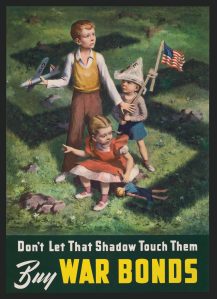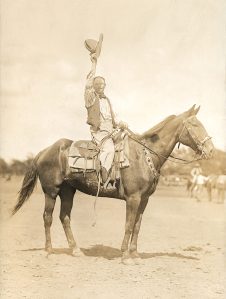
BRIGITTE SCHREIBER WAS BORN IN 1927 and grew up in Nazi Germany, living in the city of Paderborn with her parents and three siblings until late in the war. Life during the war, she learned, required constantly mastering new skills, including learning to not speak your mind, keeping watch for low-flying Spitfires, and whipping up breakfast for hungry American tankers. After the war, Brigitte met and married a British soldier, Jack Hayward, himself a veteran of Dunkirk and D-Day, and moved to England. Now 91, she lives in Maidstone, Kent.
Was there talk about politics at home when you were a child?
No, not very much. My father was a furniture maker and worked for a firm in Paderborn, but when that went bust he was unemployed from 1926 to 1933. He did his best to try to make ends meet, but we had to survive on very, very little.
Did your parents vote for Hitler?
Everybody did in 1933, because Germany was down and he promised to get people back into work. My father got a job as a coachbuilder for German railways, so things were a little easier, and he was enthusiastic about Hitler at the beginning. But in about 1936 he realized that things weren’t right. My father wasn’t left-wing, but he didn’t like Hitler. He used to call him “Grossmaul” (big mouth).
What was it like growing up in Nazi Germany?
It was all rather normal for us. We weren’t really restricted and we never felt threatened directly, but I think my parents knew there was a danger there. They always told us to be quiet; don’t speak out.
Did they oppose Hitler?
Not really. But I remember coming home from school—like many families, we had a Volksempfänger radio set—and my mother was standing there in the living room, with her ear nearly inside it. When I asked what she was doing, she said “I’m listening to the British news, it’s the only way to get the truth. But don’t you dare say anything! Or they’ll take me away!” We never mentioned it again.
Also, my father said that “If we lose the war, it is bad, but if we win the war, it’ll be worse.” Of course, he didn’t dare say anything like that outside of our home, he just said it to the family.
Did your family have Nazi friends or neighbors?
We had a neighbor who was in the SA—a “Brownshirt”—and when we would greet him in the morning, he would reply with “Heil Hitler!” My sister and I could never say that; we could never get it out, somehow. So we tried our best to avoid it.
What do you recall of the persecution of Paderborn’s Jews?
I remember Kristallnacht in 1938, when the Nazis set the synagogue on fire. I was 11. My sister and I went to see. We had never witnessed such a thing before; it was horrible. Also we had two Jewish boys in our school, and one day they just disappeared and we didn’t know what had happened to them. It was 1942, I think. They were lovely boys. We wondered where they had gone, but as children we didn’t ask questions. My parents said they had probably gone abroad; that they had gotten away. We knew that Hitler didn’t like the Jews, but we didn’t know what he was doing with them. It was never talked about.
Did you hear of any opposition to the Nazis?
Only indirectly. In the summer of 1944, there was a greengrocer who used to come around with his horse and cart, and my mother went down with another couple of ladies, including the wife of our Nazi neighbor. And one of them said that she had just heard on the radio that they had tried to kill Hitler, to which the greengrocer asked, “Did they get him?” She said, “No, they didn’t” and he replied, “What a shame.” And that was it.
We never saw him again. Later on we heard he had died. We never heard anything about concentration camps, or what happened to people in them—but maybe we didn’t want to know.
What were your experiences of the bombing war?
We didn’t have much bombing in Paderborn until late in the war, 1944–45. Once when the bombers came, we were in the cellar of our house, and—I remember it to this day—my little brother, he was five then, stood beside me, tugged on my skirt, and said, “Do we have to die now?” It broke my heart.
Afterward we saw that the house opposite ours had taken a direct hit; the woman living there was killed. It was horrible. The next bomb missed us and exploded in our back garden, but still the house was completely destroyed. We lost everything.
How did the war end for you?
Well, it nearly ended that spring! I was cycling along the road, just outside Paderborn, when I heard planes approaching very low. I thought, “They can’t be German”; German planes were long gone from the skies. All of a sudden, I heard shooting. I dropped my bike and threw myself into the ditch at the side of the road, just as this plane flew over me firing away: rat-a-tat-a-tat…. It was a Spitfire, I think, shooting at anything he could find. Naughty so-and-so!
Did you stay in Paderborn?
By 1945 I was 18; I was working in a factory making ammunition boxes and my sister, Ursula, was working in a uniform factory. My father wanted to get us all out of the town. He said that the war would be finished soon; it couldn’t go on much longer, but he didn’t want us to be killed in Paderborn. So he sent my sister to Bad Driburg—with my mother and the two boys—and I went by bicycle to a little village called Ebbinghausen, 18 miles away, where I used to spend my holidays.
What happened there?
That was in March and the Americans arrived in April. The village was in a valley and we could hear the fighting going on around us. We had 16-year-old boys fighting against them. We met one. He came down into the village, crying, as he didn’t know what to do, and he asked what the Americans were like. And I said, “Just throw your gun away, and go up the road and you’ll find them and they won’t do anything to you.”
Did the fighting continue?
No; we waited downstairs in a cellar, and when we heard heavy footsteps on the stairs, we were frightened stiff, clutching little white handkerchiefs as a symbol of surrender! And then an American soldier appeared and asked—in German—if there were any soldiers there, and shone a torch [flashlight] into everyone’s faces.
Did it feel like defeat?
I felt like it was more of a liberation. We didn’t feel threatened; we were pleased to see them, as the war would then be over. I think it was that day that I saw an American tank for the first time. It had a black soldier riding on top of it. I had never seen a black man before! I could just see his teeth! He was waving; they were all ever so friendly.
The Americans stayed in our village for about a week. My cousin used to make pancakes for them; I used to make butter, and another cousin had bees, so we had lovely things to eat. And the Americans loved it:
pancakes, thick butter, and honey. We had a good time then. For us the war was finished. ✯





